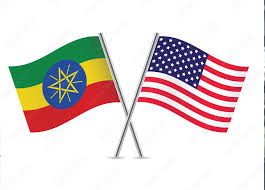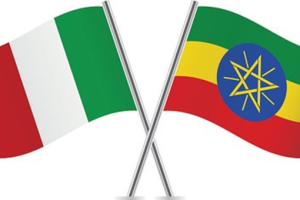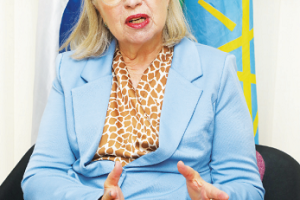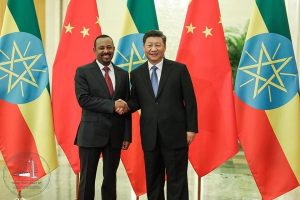
Ethiopia and the United States of America are celebrating 120 years of diplomatic relations this year. The two countries share a strong bond across various sectors, with education being a key area of collaboration.
Many Ethiopian students are pursuing their education at prestigious U.S. universities, showcasing the growing ties between the two nations. Furthermore, the collaboration between Ethiopian and U.S. universities in research, knowledge exchange, and other areas highlights the strong bond between the two countries.
The recent August 15-16, 2024 Higher Education Leaders Capacity Building Culminating Workshop in Addis Ababa exemplifies this partnership. The U.S. Embassy in Addis Ababa, in collaboration with Texas Tech University, Ohio State University, Oklahoma State University, and the Ethiopian Ministry of Education, hosted a closing ceremony for the Leadership, Management, and Governance (LMG) program.
The LMG program, a key component of the U.S. State Department’s University Partnership Initiative (UPI), has successfully equipped 50 university presidents and vice presidents from 37 of Ethiopia’s public universities with essential leadership and institutional management skills. This program, which began four years ago, was delayed due to the COVID-19 pandemic.
Over the past two years, participants have benefited from in-country training and immersive study tours to Texas Tech, Ohio State, and Oklahoma State Universities, gaining valuable insights into best practices and challenges in higher education leadership and administration.
Dr. Desalegne Mengesha, Country Director of the Ohio State University Global One Health Ethiopia office told The Ethiopian Herald in an exclusive interview that the project aims to enhance leadership and management skills within Ethiopian higher education institutions.
The project has trained over 50 individuals in two rounds, with participants including presidents and vice presidents from Ethiopian universities and representatives from the Ministry of Education. The training program, which combines in-country instruction with a study tour to three partner universities in the United States, provides participants with practical experience in research, infrastructure, curriculum development, faculty empowerment, financial management, and internationalization.
“The trainees witnessed how U.S universities conduct research, observed their infrastructure, and gained insights into their approach to quality education, including curriculum design and teachers empowerment” said Desalegne “the trainees returned with valuable experience from their trip”.
The project aims to bridge the gap between Ethiopian universities and their international counterparts, fostering collaboration and knowledge exchange. Desalegne emphasized the importance of international partnerships for Ethiopian universities, enabling them to secure funding and implement projects crucial to the country’s development.
“Ethiopian universities need to cultivate strong international relations with international universities and donors,” he said. “These partnerships are crucial for attracting projects that address critical national priorities. By collaborating with international partners, they can secure funding and expertise to implement impact full project.”
The project is particularly relevant as Ethiopian universities are relatively young and face challenges in areas such as faculty development, research capacity, and policy implementation. By training university leaders, the project aims to address these challenges and foster a more effective and efficient higher education system.
“Given the high international standing and impactful research of U.S universities, Ethiopian Universities have much to learn,” said Desalegne. “Ethiopian universities are relatively young institutions, and their capacity in areas such as instructor development, research, and policy development is still evolving. By strengthening the leadership capacities of university presidents and vise- presidents, they can begin to address these challenges and empower those working within the institutions.”
The project also emphasizes the importance of community engagement and service. Trainees are encouraged to apply their newfound knowledge to improve policies, management systems, and funding allocation within their institutions, ultimately impacting the lives of their communities.
“The experience gained through this project in research and community service will enable participants to improve policies, internal management systems, and financial management,” he said.
The project includes ongoing monitoring and evaluation, with trainees presenting their progress on implementing the learned practices within their respective universities. While acknowledging the challenges of fully implementing all aspects of the U.S. model, Desalegne expressed confidence that the project will lead to positive changes in Ethiopian higher education.
“During the training, participants were given the opportunity to select tasks they wanted to implement in their respective universities,” he explained. “Following the training, they are expected to present or report on the progress they are making in implementing these initiatives.”
The project has also extended its reach beyond the initial training program. Ten research universities in Ethiopia participated in a week-long training session on internationalization and research, in collaboration of the U.S. Embassy in Ethiopia and Ohio State University. This training was developed based on the reflections of participants in the original project.
He expressed optimism about the project’s impact, stating that participants have identified practical solutions that can be implemented within their universities. He believes that the program will contribute significantly to the development of a stronger and more effective higher education in Ethiopia.
In exclusive interview with The Ethiopian Herald, Associate Professor Binyam Tilahun, Vice President for Research and Technology Transfer at the University of Gondar, highlighted the institution’s efforts to enhance its research capacity and funding through a program inspired by U.S universities.
“Universities in Ethiopia, including Gondar, have a strong tradition of research, often conducted with limited government funding,” Professor Binyam explained. “We have a history of competing and winning international projects, but there were gaps in our approach.”
Two years ago, the American Embassy launched a Leadership, Management and Governance program, selecting individuals from Ethiopian universities to participate. Professor Binyam was among those chosen, and he spent 21 days visiting three U.S universities: Texas Tech, Ohio State, and Oklahoma State Universities.
“We observed first-hand how U.S universities attract students, write research proposals, and secure funding,” Professor Binyam said. “We brought back this knowledge and have been working to implement it in our own institutions.”
According to Binyam the program has focused on several key areas such as multidisciplinary Research which means U.S universities encourage collaboration among diverse experts, leading to more comprehensive research proposals. Professor Binyam emphasized the importance of adopting this approach in Ethiopia.
Secondly he mentioned that the program highlighted innovative methods for generating income for research activities, a vital aspect for universities seeking financial independence.
Also, the endowment system which is American universities often benefit from it, where alumni and community members donate their wealth to support the institution. While this practice is less common in Ethiopia, Bahir Dar University is exploring its potential, with a recent donation leading to the development of a new hospital.
Moreover, Professor Binyam emphasized the importance of ensuring research benefits society. He pointed to the “extension” programs prevalent in American universities, where research actively engages the community, leading to more impactful results. Ethiopian universities are actively working to implement a similar model, aiming to bridge the gap between academic research and societal needs.
“We have implemented many of these practices and are already seeing positive changes,” Professor Binyam said. “We have established a research directorate to manage grant funding, ensuring accountability and transparency. We are also adopting the U.S model of having independent financial and business professionals manage research funds.”
Professor Binyam’s insights offer a glimpse into the evolving landscape of research and funding in Ethiopian universities. The program, inspired by American practices, is poised to strengthen the capacity of University of Gondar and potentially serve as a model for other institutions across the country.
BY EYUEL KIFLU
THE ETHIOPIAN HERALD TUESDAY 20 AUGUST 2024





